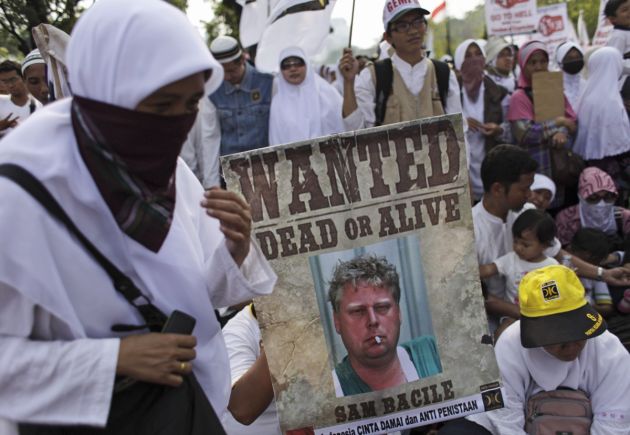Rights groups blame Indonesia's blasphemy law for failing state of minorities

Human rights groups have criticized the Indonesian government for the worsening state of minorities in the country, blaming it on an outdated blasphemy law for making part of its population vulnerable to abuse.
At the start of a two-day regional rights conference, Ucanews.org reported that groups complained about how the 1965 blasphemy law violates human rights.
They also noted how unequal law enforcement compounds the problem.
"The existence of the regulations is obviously against human rights because the state sets a limit on citizens in terms of adhering to religions and practicing them," said Jayadi Damanik, coordinator of Freedom of Religion and Belief at the National Commission on Human Rights.
"For example, the police - in many cases like rallies - tend just to relocate victims instead of taking strict action against intolerant groups delivering hate speeches.
"Also, the legal system comes down hard on minorities, not groups committing violent acts," said Damanik.
The blasphemy law was passed in 1965 and recognizes six religions: Buddhism, Catholicism, Confucianism, Hinduism, Islam and Protestantism.
The law, which does not recognize other religions, also bans alternative interpretations of recognized religions, including Islam.
Despite the law, its implementation is largely left on the hands of government officials who, sometimes, ignore the law completely.
Rights groups noted an incident in 2010 where authorities stopped the congregation of GKI Taman Yasmin in Bogor, West Java using their church.
The local government even revoked their building permit to stop them from using the structure for worship.
The group questioned the move before the courts and it secured a favorable ruling in 2012 from the Supreme Court. This allowed them to reopen the church.
But the mayor ignored the ruling and kept the church closed.
In an effort to force the local government to implement the Supreme Court ruling, the congregation held a Sunday service in front of the Presidential Palace in Jakarta.
Such discriminatory regulations can lead to persecution and intimidation, according to Febi Yonesta, director of the Jakarta Legal Aid Institute.
"Our findings often reveal that the issue lies in intolerant groups as well as leaders taking benefits from the issue for the sake of their own political interest," she said.
In his opening speech, Muhammad Machasin of the religious affairs ministry's Directorate of Islamic Guidance acknowledged that the government has to exert more effort to protect the rights of Indonesians when it comes to their freedom of religion.
"We are walking to the bright side. However, religious-based issues have still to be addressed. There are a lot of things to be done together. The Religious Affairs Ministry cannot do it alone," he said.
